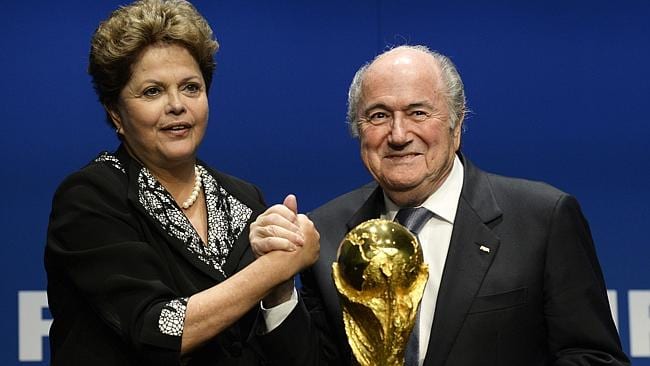
With only a day until the 2014 FIFA World Cup, international press appear to have a singular focus on all that is going wrong in Brazil and its state of preparation (or lack there of). They are not entirely without merit – eight people have died in the construction and restoration of stadiums, of which delays have been widely reported; protests around the country are unrelenting and increasingly violent, to say nothing of the security in the favelas surrounding São Paulo and Rio de Janeiro that police forces still struggle to control.
Given this, what has Brazil done from a public diplomacy standpoint to counter the perception that it is not quite ready to host the Cup? Not much, it seems. To the extent that virtually every major global news outlet – CNN, the BBC, even their own O Globo newspaper – focuses on the singular narrative of unpreparedness, Brazilians appear to be in accord with that narrative: not only are they unprepared, but they firmly believe that hosting the cup will actually hurt Brazil’s image abroad, according to a recent Pew survey. On Twitter, users are using the hashtag ‘#imaginanacopa’, or ‘imagine the cup’, in tweets to allude the pending “doom” Brazilians predict World Cup will have on their country.
Even President Dilma Rousseff, who is largely defensive to this reaction, is inadvertently focused on the looming chaos as evidenced by her call for increasing funds to security and police forces and admitting to foreign journalists just days before the opening ceremony that things are indeed being done at the last minute:
“Everywhere in the world these big engineering projects always go down to the wire,” she said from a dinner with foreign journalists – her first before the World Cup – at Alvorada Palace in Brasilia. “Those who want to protest will be allowed to do so 100%,” adding that the vast majority of Brazilians will be supporting the Cup and protesters “will not be allowed to interfere or disrupt the tournament.” – BBC.com, June 4
She has also taken the step of not speaking at the opening ceremony on Thursday, but largely at the behest of FIFA, which has also received a fair amount of backlash from the Brazilian public. Though the move is probably wise, it is not likely to be enough for Brazil’s public diplomacy to advance as it faces mounting doubt and weariness from both within and outside the country. Perhaps this reflects Rousseff’s somewhat laissez-faire attitude that once the games begin, all will be forgotten. She may have a point: in the 2010 World Cup, reports leading up to the event shed a similar light on the state of security in South Africa. The only legacy it has now is the buzzing sound of vuvuzelas.
Overall, however, Brazil has done a poor job of using a valuable soft power tool like the World Cup to promote its public diplomacy. There are a few opportunities for redemption: 1. The month-long event passes without any major disasters or deaths resulting from the dubious transportation systems, or 2. If Brazil wins the Cup, which, despite being the heavy favorite, some analysts warn that it is not as much as it should be for a home team. Otherwise, Rousseff may have to spend the rest of the year answering the question “Was it worth it?” rather than focusing on economic and foreign policies during her re-election in October. One can only hope that if she does win, public diplomacy lessons learned from managing the World Cup can be applied to the execution of the Olympics in Rio de Janeiro in 2016.

